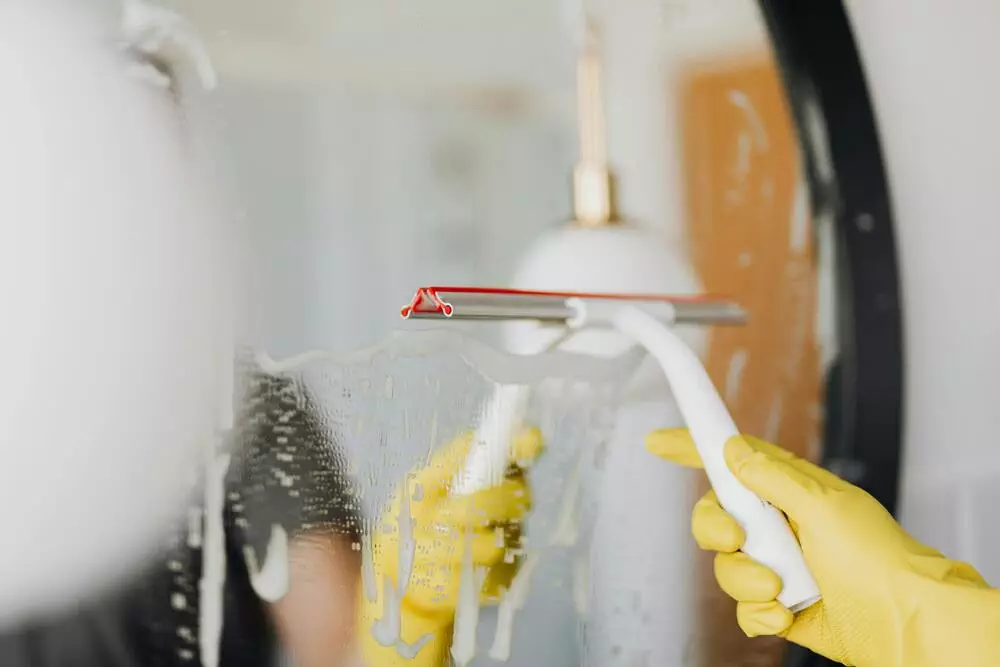In the dynamic world of cleaning services, from residential to commercial spaces, launching a successful venture requires more than just a bucket and mop – it demands a robust, well-crafted cleaning service business plan. Crafting a comprehensive business plan is the cornerstone that can set your startup apart in the highly competitive cleaning industry, whether venturing into house cleaning, office cleaning, or specialized services like carpet cleaning.
A well-devised plan outlines the path to profitability, covering startup costs and cleaning equipment procurement, and sharpens your competitive advantage and marketing strategy. From establishing a compelling executive summary to identifying your target market and setting a competitive hourly rate, every detail contributes to the blueprint of success for your cleaning business. Ready to look into the essentials of creating a business plan that positions your cleaning service for triumphant growth? Our guide is your first step towards turning that vision into a sparkling reality.
Cleaning Business Plan Step 1: Executive Summary

In the Executive Summary of your cleaning service business plan, it’s essential to precisely and persuasively present the core elements of your venture. This section is your chance to shine and convince the reader of the viability and potential of your cleaning business. Here’s a breakdown:
- Business Concept: Introduce your company’s mission and range of services, emphasizing the commitment to excellence that distinguishes your venture within the cleaning industry.
- Target Market & USP: Clearly define the demographic you aim to serve, whether it’s through commercial cleaning, residential cleaning, or specialized services like carpet cleaning, and highlight what makes your cleaning service unique.
- Management Team: Showcase the experienced individuals behind the company, underlining their ability to navigate a startup to success in the competitive cleaning market.
- Financial Projections: Offer a snapshot of expected financial performance, taking into account startup costs, equipment expenses, and projected revenue based on your competitive hourly rates.
- Funding Requirements: Detail your financial needs for launching and expanding your service, including both initial and ongoing expenses.
Crafting a compelling Executive Summary is crucial for capturing the attention and confidence of potential backers, setting the stage for a detailed and convincing cleaning service business plan.
Cleaning Business Plan Step 2: Company Overview
Structuring your company with a clear business strategy and robust financial planning is essential in the competitive cleaning service industry. Here, we focus on the foundational elements that will galvanize your cleaning business to success.
- Business Structure Description: Our cleaning service business operates with a core team that includes roles from operations manager to cleaning staff. The team aims to manage both residential and commercial cleaning jobs efficiently.
- Mission Statement: “To provide high-quality, reliable cleaning solutions to both residential and commercial sectors, ensuring customer satisfaction and excellence in every aspect of our service.”
- Detailed Services Offered:
- Residential Cleaning Services: Involves home cleaning, window cleaning, and specialty services catered to individual housing needs.
- Commercial Cleaning Service: Tailored to maintain and enhance the cleanliness of commercial properties, incorporating everything from routine cleaning to deep cleaning of high-traffic areas.
- Specialty Cleaning Services: Addressing niche demands such as carpet cleaning, building cleaning, and more engaged technical cleaning requirements.
Arming your cleaning business with a strong business plan can help it gain heightened visibility in the local market, grow, and set appropriate price points for its services. This strategic document plays a pivotal role, particularly if you’re just starting out or aiming to expand your service offerings within the residential and commercial cleaning sectors. Essentially, a business plan helps establish a clear path for business operations and identify potential opportunities and barriers within your industry.
Cleaning Business Plan Step 3: Market Analysis
A thorough market analysis is the bedrock of a successful cleaning service business plan. This crucial step separates the thriving cleaning businesses from the transient startups. Focus on the following aspects for a well-rounded approach:
- Target Market Research: Dive deep into understanding who needs your cleaning service. Is your primary client base residential (homes, apartments) or commercial (offices, retail locations)? Assess startup costs and set an hourly rate matching your target market’s budget and business needs.
- Demographic and Psychographic Profiles: Identify the age, income level, lifestyle, and behaviors of your potential customers. This information will tailor your marketing strategy, ensuring it resonates with the right audience for house cleaning, carpet cleaning, or even specialized janitorial services.
- SWOT Analysis: Critically analyze your business’s Strengths, Weaknesses, Opportunities, and Threats. This insight helps position your cleaning or janitorial service to leverage its competitive advantage effectively.
- Competitor Analysis and Market Gaps: Examine the current landscape of the cleaning industry. Who are your top competitors in office cleaning or residential cleaning? What can you offer that others don’t? Identifying these market gaps can be your golden ticket.
Incorporating these elements into your business plan outlines a clear picture of the cleaning business landscape and strategically positions your service business for success. From understanding startup costs to purchasing the right cleaning equipment, each detail contributes to carving out a competitive advantage that propels your business forward.
Cleaning Business Plan Step 4: Marketing Strategy
A powerful marketing strategy is the lifeblood of any growing cleaning business. Lucid and direct, like the sparkle after a good scrub, it helps your business shine in a crowded marketplace.
- Branding and Pricing Model: Your business name and brand are your banners in the cleaning industry. Develop branding that communicates reliability and quality, and build a pricing model that reflects the value of your services – whether for house cleaning or commercial property maintenance. Price your services to balance competitiveness with profitability.
- Promotional Strategies and Advertising Channels: Discover the world’s conversation about cleaning – and join in. Use a mix of traditional and digital channels to spread the word.
- Offer a free cleaning or an introductory rate to new business clients.
- Use social media to highlight window, carpet, and specialty services.
- Connect with local businesses for referrals.
- Sales Strategy and Unique Selling Propositions (USPs): Define what separates you in the residential and commercial cleaning sectors.
- Could it be your eco-friendly cleaning supplies or state-of-the-art cleaning equipment?
- Maybe it’s your customer service representative’s attention to detail or cleaning technicians’ expertise.
Embed these strategies into your company’s framework for a level of sophistication that resonates with potential customers. A successful cleaning service business plan isn’t just a document; it’s the very DNA of your cleaning company. Whether you’re an established cleaner or just starting out, focus on the needs to start your venture – from obtaining business licenses to investing in company vehicles – ensuring you’re fully equipped for the journey.
Remember, a great business plan doesn’t just describe your current cleaning service; it projects your vision for the next three to five years. It’s your blueprint to grow your cleaning business, navigate the commercial cleaning industry, and outshine other businesses in your area.
Cleaning Business Plan Step 5: Operations Plan

An effective operations plan is the engine of your cleaning business, ensuring efficiency and quality at every turn. It’s essential to map out every detail, from daily routines to the personnel who carry them out.
- Daily Operational Processes:
- Outline the daily schedule for cleaning jobs, including specific times for residential, commercial, carpet, and specialty services.
- Establish protocols for handling both routine cleaning tasks and unexpected issues.
- Location, Equipment, and Suppliers:
- Choose a strategic location that facilitates easy access to your target market.
- Invest in high-quality cleaning equipment that enhances workflow efficiency.
- Build relationships with reliable suppliers for continuous and cost-effective cleaning supplies.
- Staffing Requirements and Workflows:
- Determine staffing needs based on workload, with roles ranging from frontline cleaners to operations managers.
- Create transparent workflows to optimize team coordination and job completion.
- Customer Relationship and Quality Control Measures:
- Implement customer service protocols to handle inquiries and complaints.
- Regular quality control checks ensure that cleaning standards meet or exceed expectations.
This operations strategy not only supports the foundational needs of a startup in the janitorial service but also enhances the competitive advantage outlined in your cleaning service business plan. By addressing these operational facets, from the executive summary to the detailed day-to-day tasks, your cleaning business is poised for success in a demanding market.
Cleaning Business Plan Step 6: Management and Organization
The backbone of a thriving cleaning service is its management and organizational structure. A clearly defined hierarchy not only streamlines operations but also strengthens the core of your cleaning business plan.
- Management Structure Outline:
- Detail the organizational chart, highlighting executive and operational management roles. This ensures clear responsibilities and supports the business’s mission in the competitive cleaning industry.
- Team Member Bios and Industry Experience:
- Present short bios of key team members, underscoring their industry experience and how it aligns with your startup’s goals. Experience in residential, commercial, or janitorial services adds value and credibility, enhancing your business plan.
- Advisors and Investor Information:
- List industry advisors and potential or current investors who are backing your venture. Their faith in your startup costs, business model, and market strategy reinforces the strength of your cleaning service business plan.
This management and organization section doesn’t just narrate a structure; it sells the reader the viability and preparedness of your cleaning business. From the executive summary to this operational detail, your business plan is your pitch, convincing everyone that your service business—be it office cleaning or house cleaning—operates with precision, professionalism, and a clear competitive advantage.
Cleaning Business Plan Step 7: Financial Plan

A sound financial plan is paramount for the sustainability and growth of your cleaning service. It crunches the numbers, presenting a clear vision of the fiscal path ahead. This section details the heart of your cleaning business’s potential financial success.
- Income, Cash Flow, and Balance Sheets Projections:
- Forecast your financial activity for at least the first three years. Include detailed projections of income, cash flow, and balance sheet statements to give a holistic view of your cleaning business finances.
- Startup Costs and Operational Expenses:
- List initial startup costs, from cleaning equipment purchases to marketing strategy launches. Detail ongoing operational expenses, considering hourly rate adjustments and supply cost fluctuations. This clarity is critical for managing your cleaning service’s finances effectively.
- Revenue and Profit Margin Projections:
- Estimate your cleaning service’s revenue streams, considering different services such as residential, commercial, and specialized offerings like carpet cleaning. Analyze profit margins to ensure long-term viability.
- Break-even Analysis:
- Conduct a break-even analysis to determine when your cleaning business will likely become profitable. This critical insight helps you plan for future growth and secure investor confidence.
By meticulously planning your financial outlook, your cleaning service business plan becomes a robust document that guides your startup and attracts potential investors by demonstrating a clear path to profitability in the competitive cleaning industry.
Cleaning Business Plan Step 8: Funding Request
Securing the necessary capital is critical in turning your cleaning service business plan from a concept into a reality. This section outlines your startup’s funding needs and details how finances will be strategically used to grow and sustain your cleaning business.
- Capital Needed and Intended Use:
- Specify the total amount of capital required to launch and maintain operations. Break down how funds will support startup costs such as purchasing cleaning equipment, hiring staff, and implementing a marketing strategy. This transparency ensures potential investors understand exactly where their contributions are going.
- Preferred Funding Type:
- Outline the types of funding you are pursuing, whether equity, debt financing, or a combination. Be clear about what each funding avenue entails for contributors, from shares in the company to repayment terms.
- Return on Investment Plan for Funders:
- Highlight the projected financial returns for investors. Demonstrate a clear path to profitability through detailed revenue and profit margin projections. Show how your competitive advantage, such as specializing in janitorial services or offering eco-friendly cleaning solutions, will capture and grow the target market.
Crafting a compelling funding request is pivotal; it secures the essential capital to start and expand your cleaning service and builds investor trust by presenting a clear, detailed financial roadmap that supports a promising return on investment.
Cleaning Business Plan Step 9: Appendix

An appendix is the backbone of your cleaning service business plan, providing the hard evidence and detailed data that support your ambitious projections and strategies. It’s where every claim made in the previous sections gets its validation.
- Supporting Documents:
- Include all critical documents such as legal paperwork, contracts, and team member resumes. This section underlines the credibility and professionalism of your cleaning business, reassuring stakeholders of your thorough preparedness.
- Legal Documents, Contracts, Resumes:
- Detailed contracts outline the scope of services, from residential to commercial cleaning, ensuring clear expectations. Legal documents secure your operational legality and resumes showcase your team’s qualifications, from janitorial prowess to management expertise.
- Market Study Details:
- Present comprehensive analyses of the cleaning industry landscape. Detailed market studies confirm the viability of your target market and competitive advantage, whether focusing on eco-friendly products or a unique marketing strategy.
- Technical Specifications of Services:
- This segment delves into the specifics of your cleaning services, setting your business apart from the competition. Explain the technical superiority of your cleaning equipment or the efficiency of your cleaning processes, be it for office cleaning, house cleaning, or specialized services like carpet cleaning.
The Appendix is your opportunity to impress with thoroughness and attention to detail. It’s a compilation that solidifies your cleaning service business plan, ready to start cleaning up in a competitive industry.
As you prepare to launch and scale your cleaning business, remember that the true value of your cleaning service business plan lies in its execution and adaptability. This document is not just a static set of instructions; it’s a dynamic roadmap that must evolve with your business and the cleaning industry.
Your ability to effectively implement the strategies outlined, from managing startup costs to deploying effective marketing strategies, directly correlates with your business’s success. Focus on delivering quality cleaning services, whether in residential cleaning, janitorial service, or commercial cleaning, ensuring client satisfaction and repeat business.
The cleaning industry is continually changing due to new technologies, regulation shifts, or customer preferences (like increased demand for eco-friendly products). Your business plan should be a living document, regularly updated to reflect these changes, and pivot strategies as necessary.
mastering both execution and adaptability ensures survival and prosperity in a competitive market. Thus, with a solid cleaning service business plan at your backbone, you’re well-equipped to handle the challenges and opportunities of running a cleaning business.
